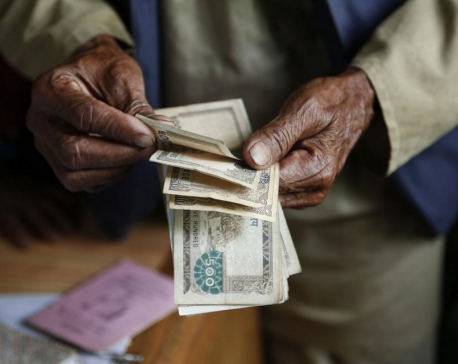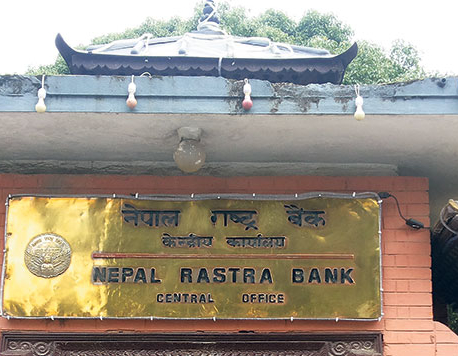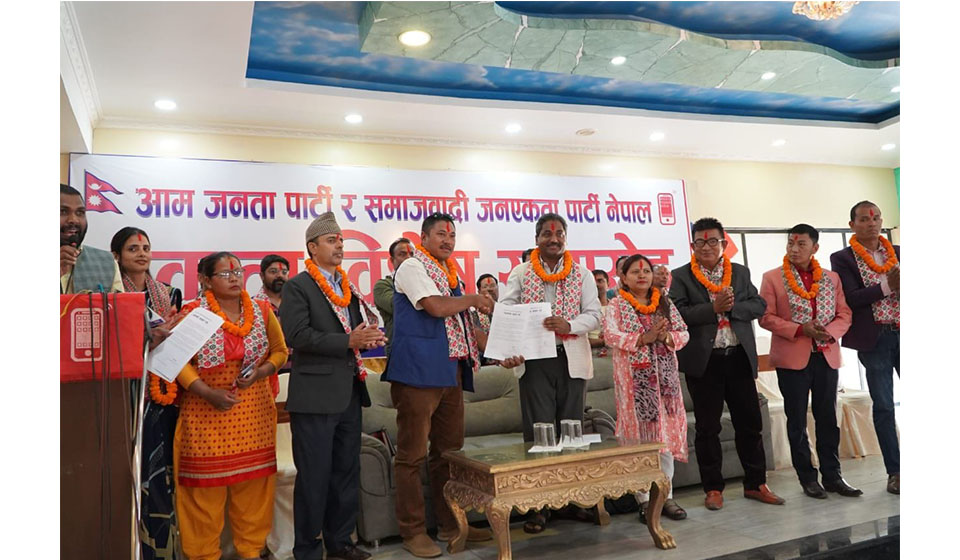
OR
#Editorial
Take measures to channelize remittance to productive sectors
Published On: March 12, 2024 07:30 AM NPT By: Republica | @RepublicaNepal

Nepal continues seeing an unprecedented surge in remittances, a vital part of the country's economy. Nepal received Rs 839 billion in remittance in the first seven months of the current fiscal year 2023/24. This amount is 21.6% more than that of the first seven months of the previous fiscal year. While the immediate financial benefits of this influx are undeniable, it's crucial to emphasize the necessity for long-term economic sustainability too. Remittances, which constitute around 23% of Nepal's GDP, have become a significant lifeline for many families across the country. However, redirecting this windfall into productive sectors is equally important, ultimately decreasing our heavy reliance on remittances for the nation's overall financial well-being. The steady rise in remittances over the years has indeed boosted Nepal's current account, posting a record surplus of Rs 1.84 trillion in mid-February and is approaching the Rs 2 trillion mark. This surplus should serve as a catalyst for strategizing a comprehensive plan aimed at shifting the trajectory of our economic dependency. The inflow of foreign currencies, driven primarily by remittances, needs to be redirected towards sustainable investments within the country.
One critical facet of this necessary shift is our focus on employment generation and domestic job creation. The creation of an appropriate environment for entrepreneurship, bolstering of existing industries and fostering of new sectors will not only absorb the returning migrant workforce but also stop the exodus of Nepali youths to abroad. The government must formulate policies that encourage investment in key sectors such as agriculture, manufacturing and technology, thereby laying the foundation for sustainable economic growth. Reducing our dependence on remittances is vital for shielding our economy against external shocks, as exemplified by the profound impact of the COVID-19 pandemic. It is important to recognize the fact that a diversified economy, with a reduced dependency on remittances, can withstand such shocks and ensure the welfare of its citizens even during turbulent times. Furthermore, a decline in the trade deficit, coupled with prudent fiscal management, can further strengthen our economic foundations.
While celebrating the short-term benefits of record-high remittances and increased foreign currency reserves, it is incumbent upon us to envision a future where Nepal's economy thrives on diversified sources of income. The government must take a proactive role in formulating policies that channelize remittances into productive sectors, ensuring sustainable economic growth and reducing vulnerability to external shocks. Only through strategic planning and execution can we secure a future where Nepal's economic health is fortified and its citizens prosper on a sustainable and resilient path. Government must devise policies to check excess consumerism based on imported goods. There is a growing call for utilizing remittance for social and economic infrastructures, for which very little effort has been put into effect till date. It is high time the government channelised the remittance for the productive uses via purchasing of the capital goods and high tech devices. These measures will not only bolster the country’s real GDP, but will also ensure generation of more employment opportunities.
You May Like This

Channelize remittances for sustainable economic growth
Nepal has witnessed an unprecedented surge in remittances, a vital component of the country's economy, reaching a staggering Rs 116.02... Read More...

Remittance inflow jumped 29% to Rs 516 billion in seven months
KATHMANDU, March 16: Nepal received a total of Rs 515.55 billion in the first seven months of the current Fiscal... Read More...

Remittance growth rebounds as US dollar appreciates, oil price recovers
KATHMANDU, Aug 26: Remittance growth rebounded in the last Fiscal Year 2017/18 despite continuous fall in the number of Nepali... Read More...


Just In
- Sunkoshi-Marin Diversion Project’s tunnel construction nears completion, breakthrough scheduled for May 8
- Govt tightens security arrangement for Third Investment Summit 2024
- Pesticide residue found in vegetables in Nepalgunj
- Aam Janata Party and Samajwadi Jana Ekata Party merge
- 1,600 participants confirmed for Nepal Investment Summit
- Ilam-2 by-elections held peacefully, vote count likely to start tonight
- NEA schedules five-day power cut across Kathmandu Valley for underground cable installation
- Hundreds of passengers including foreign tourists in distress as poor visibility halts flights to and from PRIA







-1200x560-wm_20240427144118.jpg)






Leave A Comment